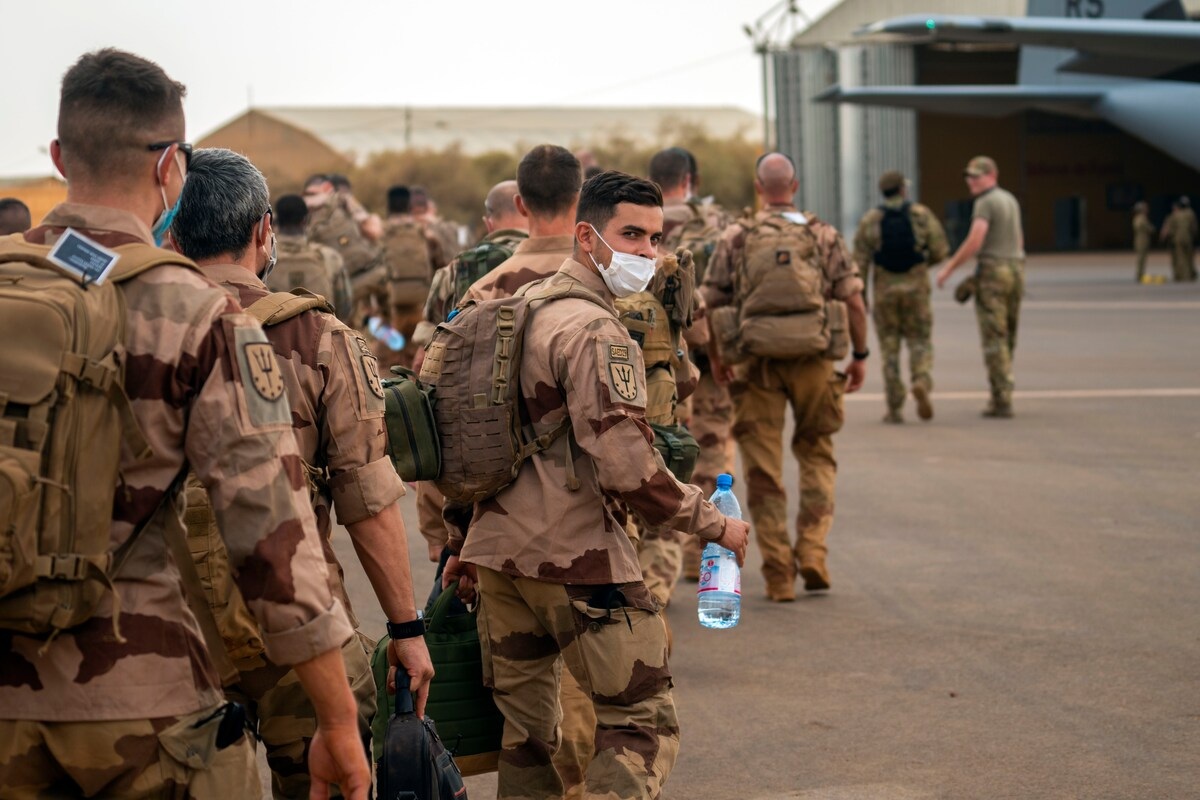The French military officially concluded its withdrawal from Senegal on Thursday, bringing an end to its long-standing troop presence in West Africa.
The move comes as France’s influence across the continent continues to diminish, particularly in its former colonies.
The departure was formalized during a ceremony in Dakar, Senegal’s capital, where French forces handed over Camp Geille, their largest military base in the country, along with an adjacent air facility, to Senegalese authorities.
This event marked the end of a phased withdrawal of approximately 350 French soldiers, which began in March and spanned three months.
General Pascal Ianni, commander of French forces in Africa, described the handover as the beginning of a new chapter in Franco-Senegalese military relations.
“This reflects France’s broader policy to end permanent military installations in West and Central Africa, in alignment with Senegal’s own request to phase out the presence of foreign troops on its soil,” Ianni said.
Senegal’s top military official, General Mbaye Cissé, emphasized that the decision aligns with the country’s evolving defense priorities.
“This withdrawal is part of a strategic shift that aims to assert the independence of the Senegalese armed forces while promoting peace regionally, across Africa, and globally,” he said.
France’s military presence in Senegal dates back to the country’s independence in 1960, when both nations signed defense cooperation agreements.
The withdrawal marks the end of over six decades of direct French military involvement in the West African nation.
The departure also follows a broader regional shift driven by growing opposition to foreign military presence, particularly France’s, in the Sahel and West Africa.
Senegal’s President Bassirou Diomaye Faye had called for the removal of all foreign troops last year, framing the move as essential to national sovereignty.
His administration has adopted a firm stance against hosting foreign bases, echoing sentiments shared by several other African nations once under French colonial rule.
The French government, acknowledging changing political dynamics in the region, has announced a significant recalibration of its military strategy in Africa.
It now intends to transition from maintaining permanent bases to offering targeted defense assistance and training programs, based on the specific needs and requests of African governments.
This strategic pivot comes in the wake of multiple setbacks for France across the continent.
Earlier this year, French forces exited their last military bases in both Chad and Ivory Coast.
Prior to that, France was forced to withdraw from Mali, Burkina Faso, and Niger.
These are all countries where military-led governments have severed traditional ties with the West and instead turned to Russia for defense partnerships.
Despite the drawdown, France still maintains a military footprint in a few African nations. In Gabon, around 350 French troops remain, operating from a shared base.
In the Ivory Coast, a small contingent of roughly 80 soldiers continues to provide military training and advisory support.
Djibouti, in East Africa, remains the only African country hosting a permanent French military presence, with approximately 1,500 troops stationed there.
France’s shifting posture in Africa reflects a broader recalibration of its foreign policy in the face of rising anti-French sentiment, increased competition from non-Western powers, and the growing assertion of sovereignty by African nations.
The era of permanent French bases in West Africa appears to be ending.
On the other hand, Paris has signaled its intent to remain engaged on the continent — albeit in a more cooperative and less visible role.
The withdrawal from Senegal may thus symbolize not just the end of a military era, but also the beginning of a new, more balanced phase in France-Africa relations, one shaped by mutual respect, evolving alliances, and a reevaluation of past paradigms.







